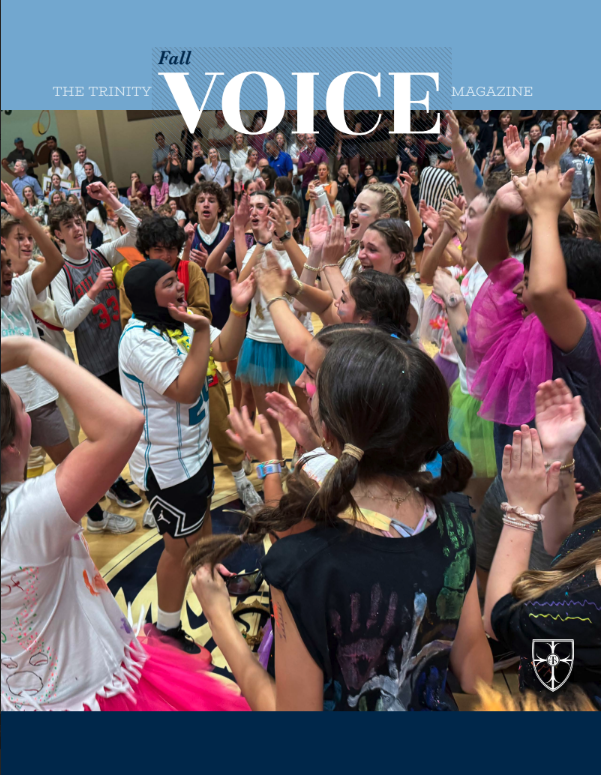Transit Vote Gives 8th Grade Glimpse at Election Process
Sarah Jane Jarmosevich’s first decision as a voter was an easy one.
As Charlotte voters went to polling places across the city, Sarah Jane and her Middle School classmates lined up at ballot boxes in the Dickson Upper Commons to decide the election for best Halloween candy. The “candy-dates” were Kit Kat and Nerds Gummy Clusters.
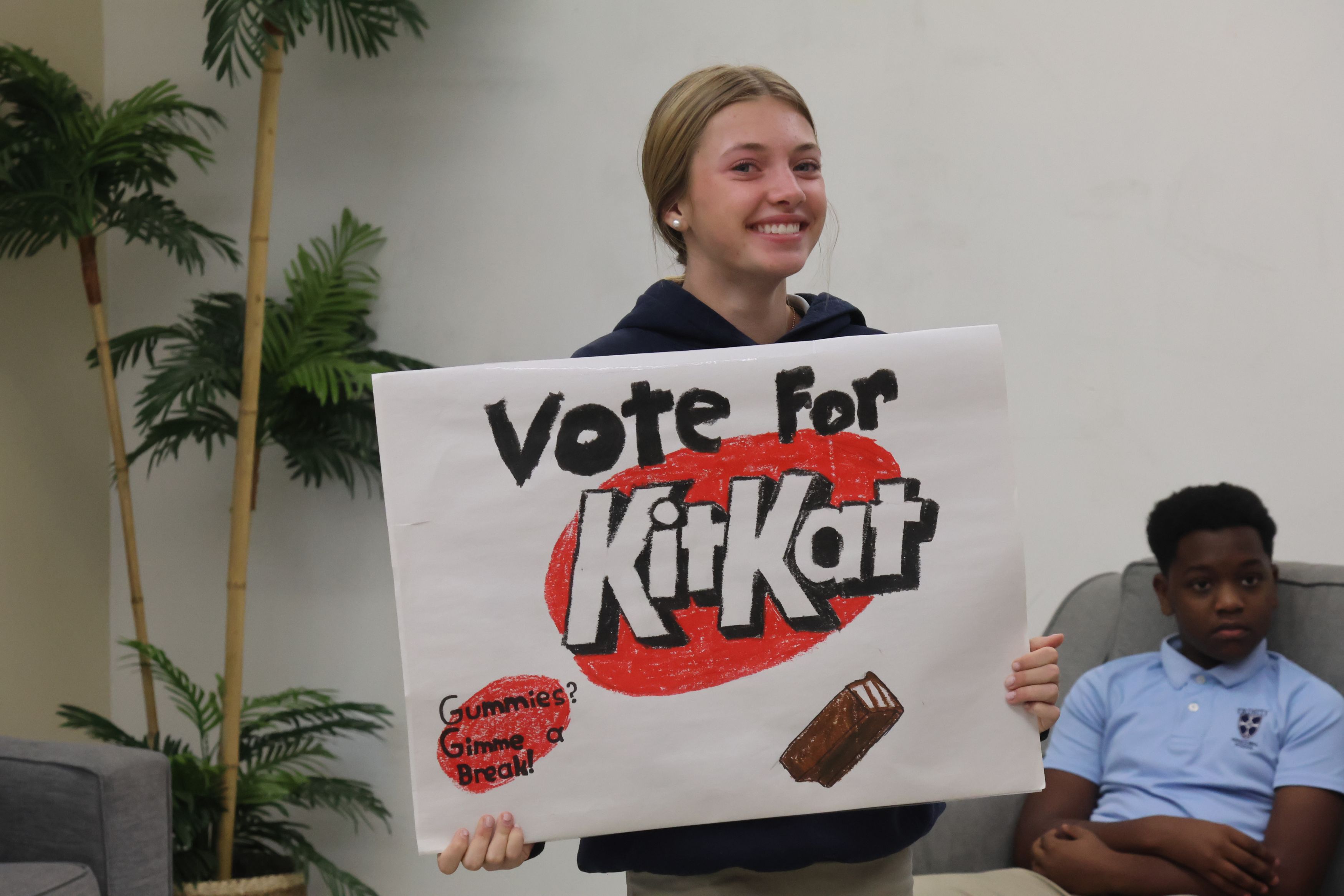
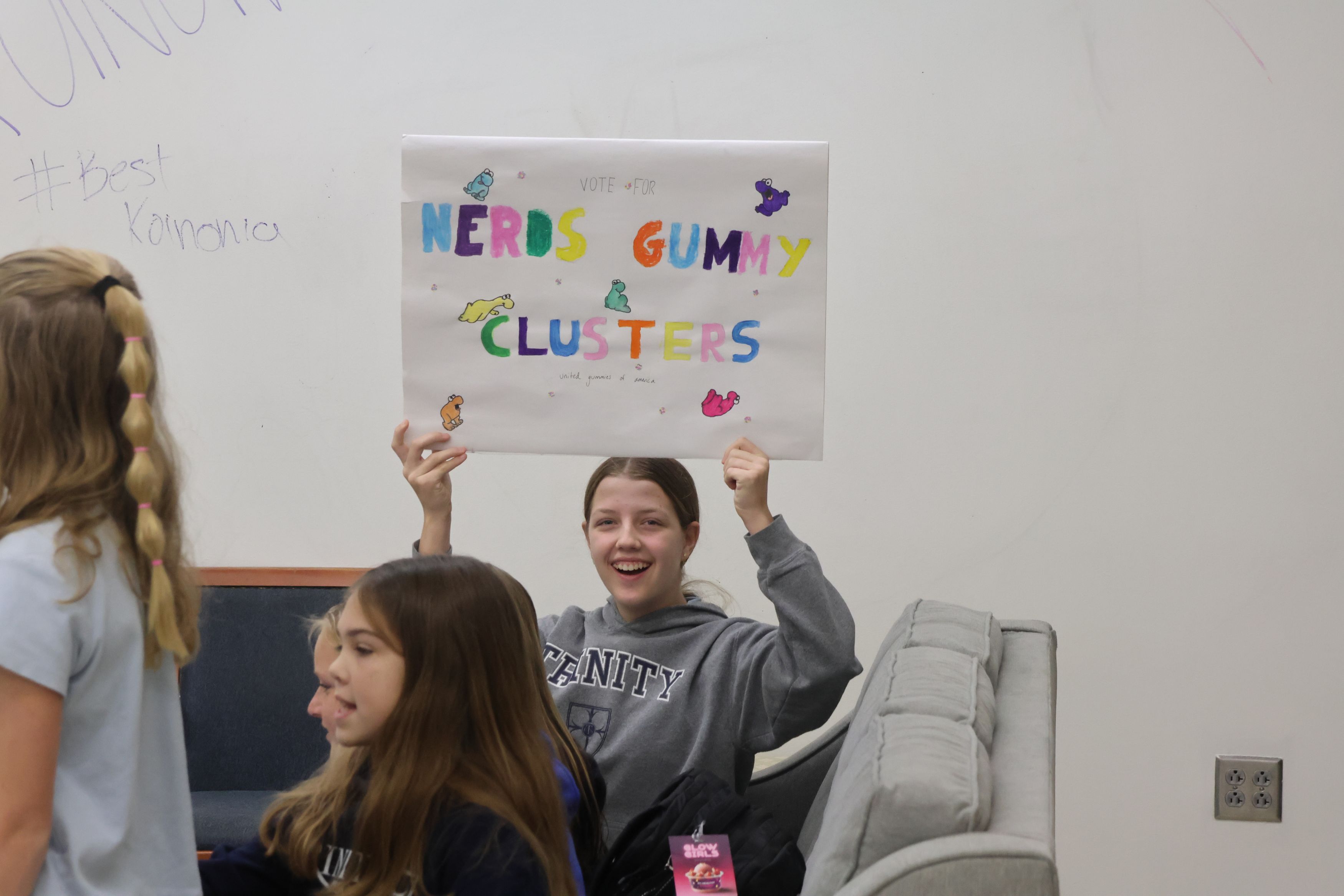
The balloting had all the trappings of an Election Day. Students had to vote at their assigned precincts and make sure they were registered correctly. They left their precincts with “I Voted” stickers. When the polls closed, Sarah and her fellow 8th Grade students counted the votes and phoned in the results to other classrooms. The winner was decided by an Electoral College rather than a popular vote.
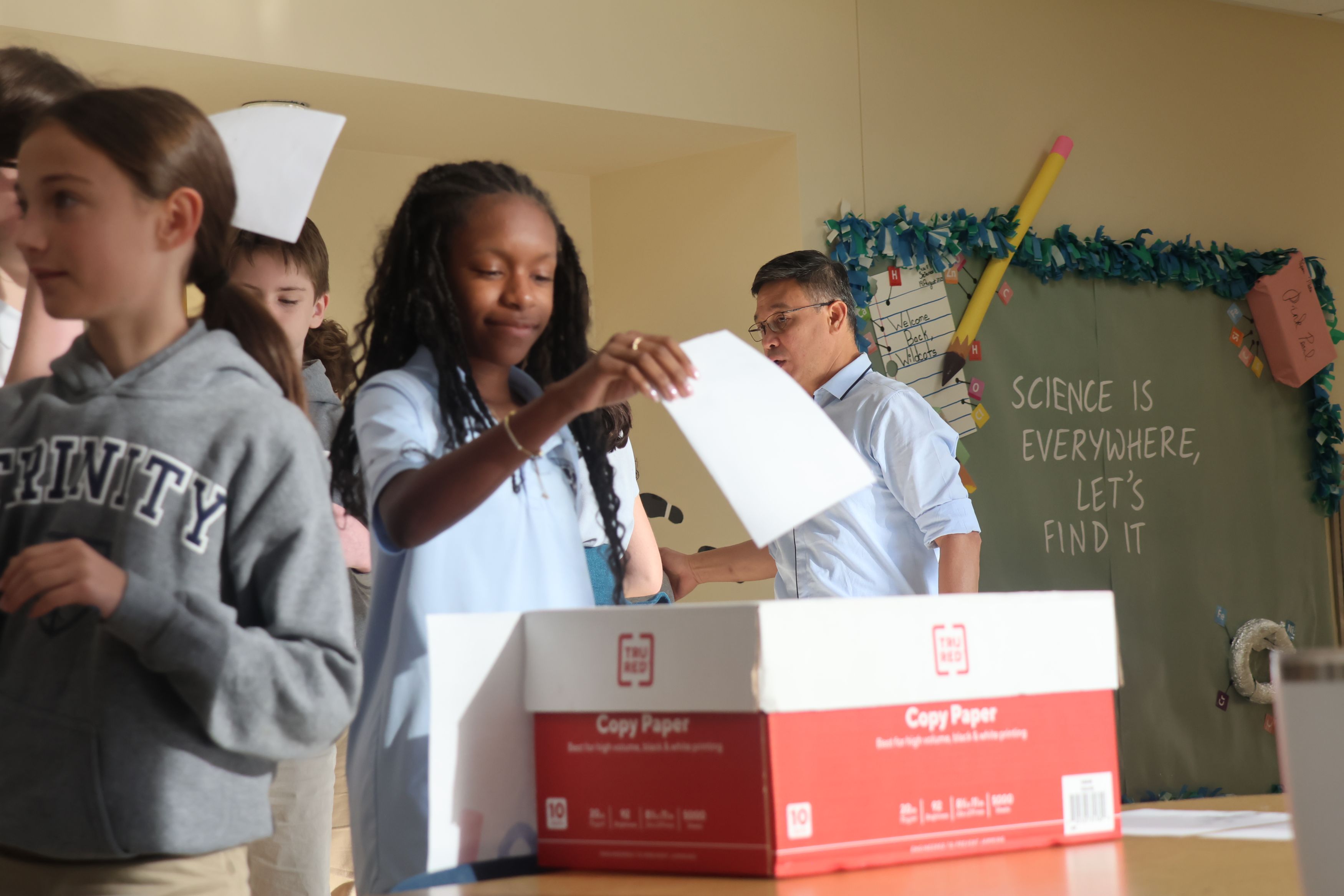
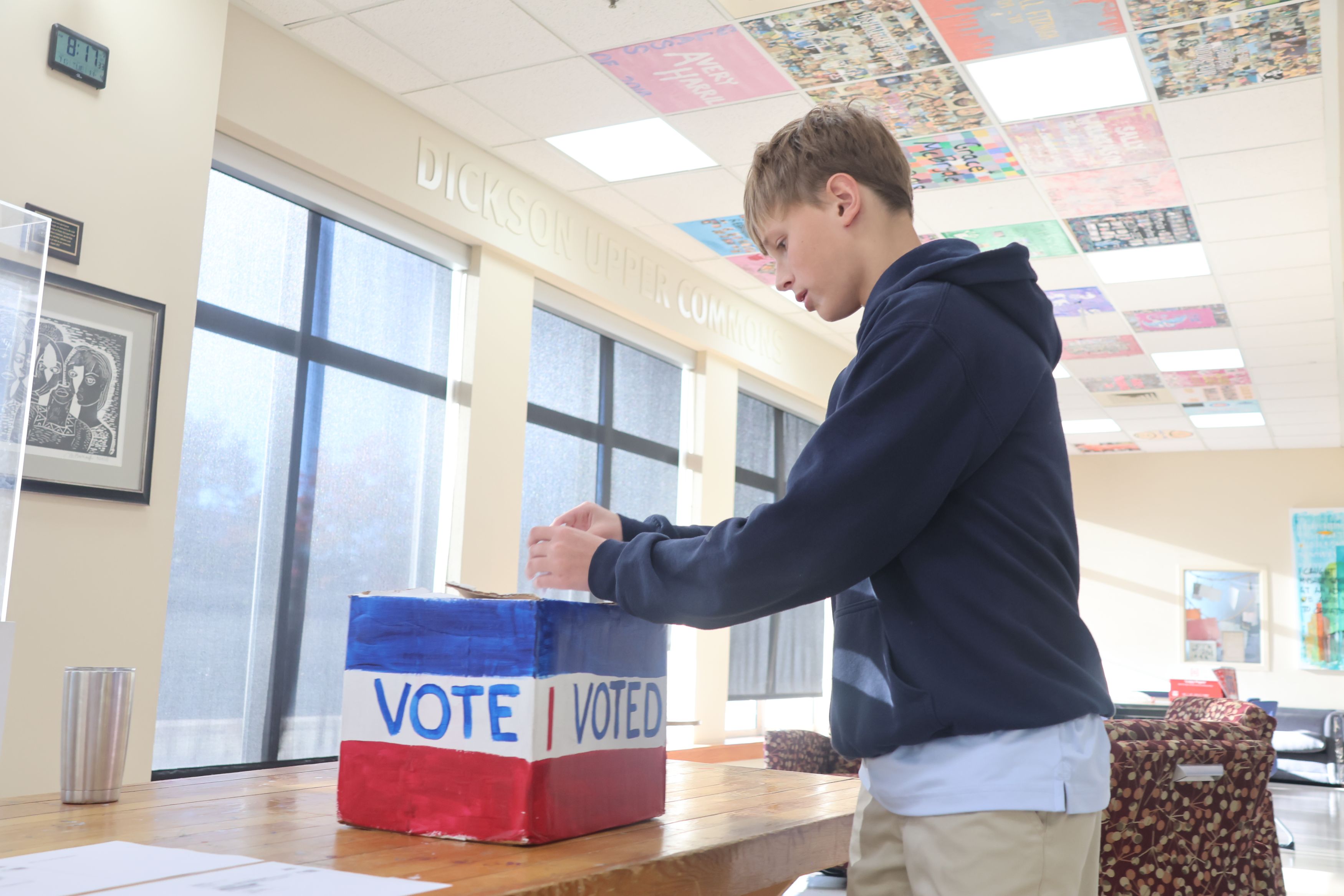
Sarah Jane’s vote? “Kit Kat — obviously,” she said. (Kit Kat won an Electoral College landslide.)
The next question on Sarah Jane’s ballot was a little more complicated to decide: Should Mecklenburg County raise its sales tax to fund an expansion of transit and transportation projects?
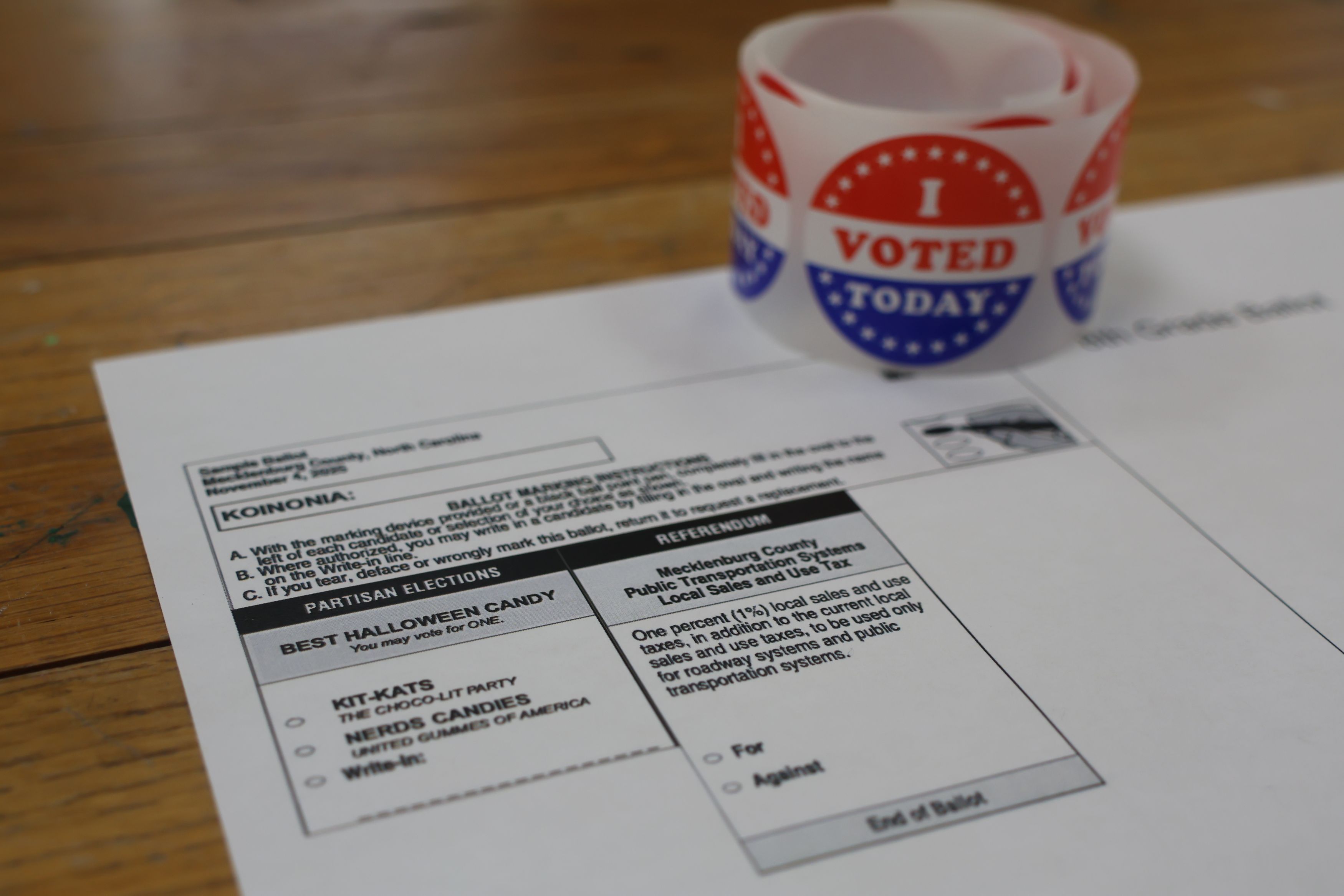
While the entire Middle School voted in the candy election, 8th Grade had a specific ballot that included the proposed tax increase, a topic the grade had been studying in its Social Issues Seminar class. Their mock referendum was a simulation of the real voting taking place that day as Mecklenburg residents also elected local leaders in municipal races.
In the weeks leading up to Election Day, the Seminar class studied the transit measure, explored the pros and cons of a tax increase to fund the projects, and assigned students to interview an adult about the referendum.
The transit vote was “one that affects their day-to-day lives as students who ride to school with their grownups every day,” said Stephanie Griffin, Assistant Head of School for Academics and one of the Seminar teachers.
At the end of their studies, students wrote persuasive letters to voters, urging them to either approve or reject the tax increase. Their campaigning was another component of the election unit as students learned about the formation of political parties and how parties appeal to voters' values through electioneering.
Like many adults who followed the transit debate, Sarah wrestled with how she would vote. She was initially a “no” vote, but studying it more closely “showed how much it would help my future and my friends’ futures.”
When the ballots were counted, 8th Grade approved the referendum by a more than 2:1 margin — a larger victory for the pro-transit side than the actual election results.
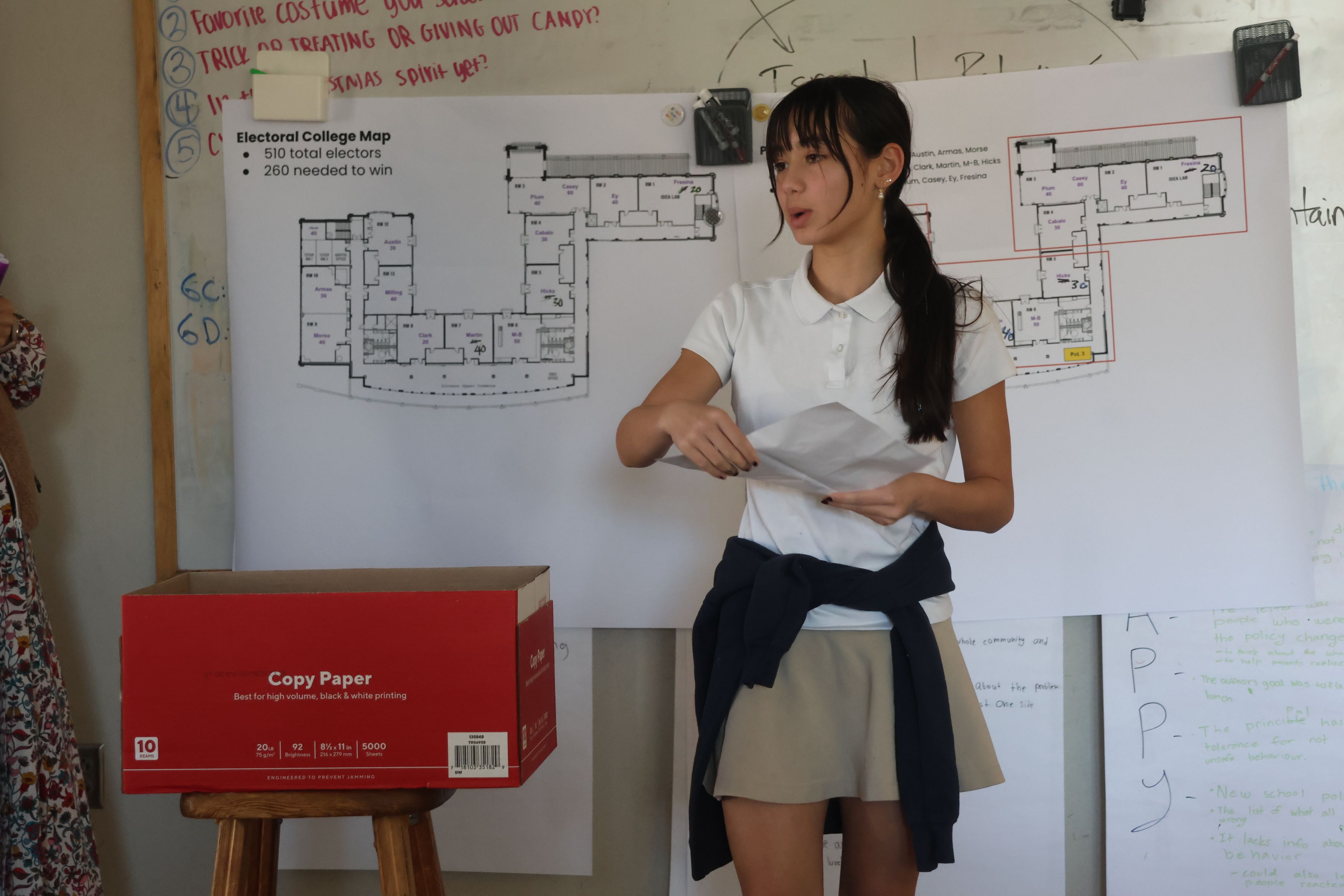
Griffin said the goal of the mock election – and of the Seminar course — is for 8th Grade students to leave Trinity with “the skills and habits and understandings they need to engage socially and civically.”

